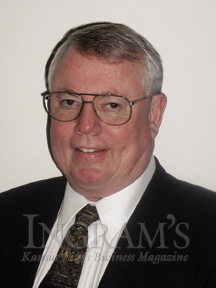by kenneth daniel
KANSAS LEGISLATURE FAILS TO NURTURE SMALL BUSINESS

In spite of a national economy that is rapidly
strengthening, the Kansas economy continues to falter. In fact, the downward
trend in Kansas seems to be accelerating. Kansas revenue estimates for
2002 were revised downward on March 8, yet there were shortfalls of $27
million in March, $52 million in April, and $102 million in May.
Corporate income tax revenues are off 62 percent from a year ago, showing
the extreme weakness of big business in Kansas. Publicly traded big businesses
pay corporate income taxes, while almost all small businesses, even those
that are corporations, pay income taxes as individuals.
It will be small business, not big business, that will turn the tide and
lead Kansas out of this recession. That is virtually always the pattern
whether it is the national or state economy. Since 1970, two-thirds of
new jobs have been added to the economy by small business. During and
coming out of recessions, small businesses typically add more than 100
percent of net new jobs to the economy. Small businesses do not typically
use downsizing to temporarily boost profits—they hang on to their
key employees, even if it means low profits during the downturn.
The news from big business in Kansas has not been good—more than
10,000 laid off by Sprint in the Kansas City area, more than 7,000 by
the aircraft industry in Wichita, and nearly 2,000 in Topeka from five
companies, among many others.
In spite of the faltering Kansas economy and the dismal news from big
business, Gov. Graves and legislative leaders fought for and won huge
tax increases on small business. This was a mistake for at least four
reasons. First, small business is needed to turn the Kansas economy around.
Second, raising taxes in a recession is exactly the opposite of the proven
remedy. Third, Kansas taxes of all types were already higher than surrounding
states, making it hard for Kansas businesses to compete. Fourth, Kansas
is rated 47th out of the 50 states in its atmosphere for small business,
mainly due to the fact that Kansas has high taxes of every major type
while most states have some categories where they have no tax at all.
In the end, the legislature passed tax and fee increases for next fiscal
year totaling more than $320 million. Franchise tax increases will be
85-90 percent paid by small business. New inheritance taxes will decimate
some small businesses. Increased fuel taxes and vehicle licensing fees
will run up the trucking and vehicle costs for small businesses. Increased
sales taxes will run up the costs of taxable purchases by small businesses,
which are already burdened with much heavier sales taxes than big business.
In addition, many other fees on business were increased. The only bone
thrown to small business was a measure that will save the average Kansas
employer about $20 per year in property taxes.
Of the lot, the franchise tax increase was the most egregious and unfair
to small business. This proposal did not arise until late March when the
governor and the Kansas Chamber of Commerce and Industry began promoting
it as a way to raise $18 million per year to pay for an offsetting $22
million in property tax breaks on business machinery and equipment. Franchise
taxes are capped at $5,000 per year, meaning that many small businesses
with 50 employees will pay the same $5,000 per year as Sprint or Boeing.
Almost all of the $18 million of new franchise taxes will come from small
business and almost all of the $22 million of property tax breaks will
go to large manufacturers.
It is imperative that Kansas small-business owners unite in 2002 to support
candidates for the legislature who are sympathetic with the needs and
concerns of small business.
Kenneth Daniel is the CEO of Midway Wholesale of Topeka,
the publisher of www.kssmallbiz.com, and the volunteer chairman of NFIB
Kansas, the largest business association in the state. He may be reached
by phone at 785.232.4590 or by e-mail at kdaniel@midwaysholesale.com.